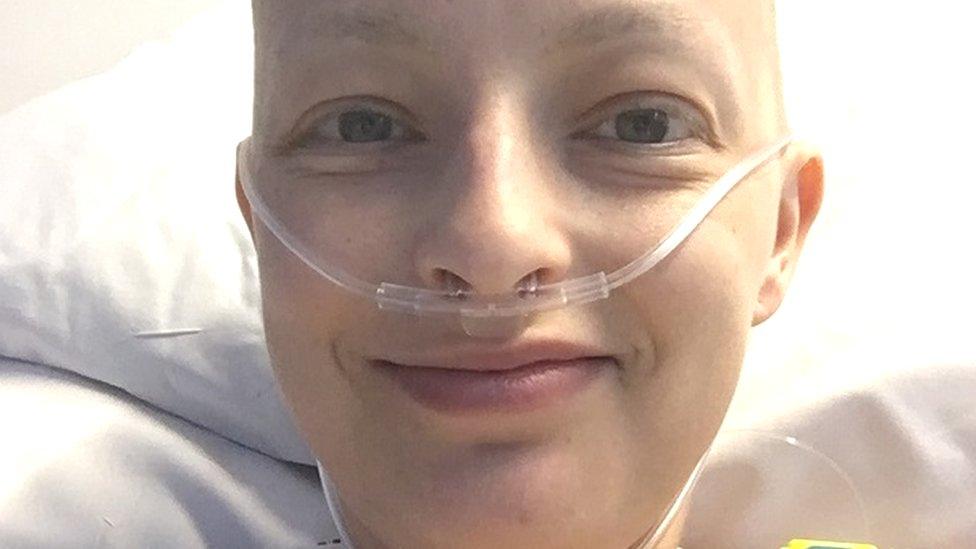Hospital in world-first cancer tool trial
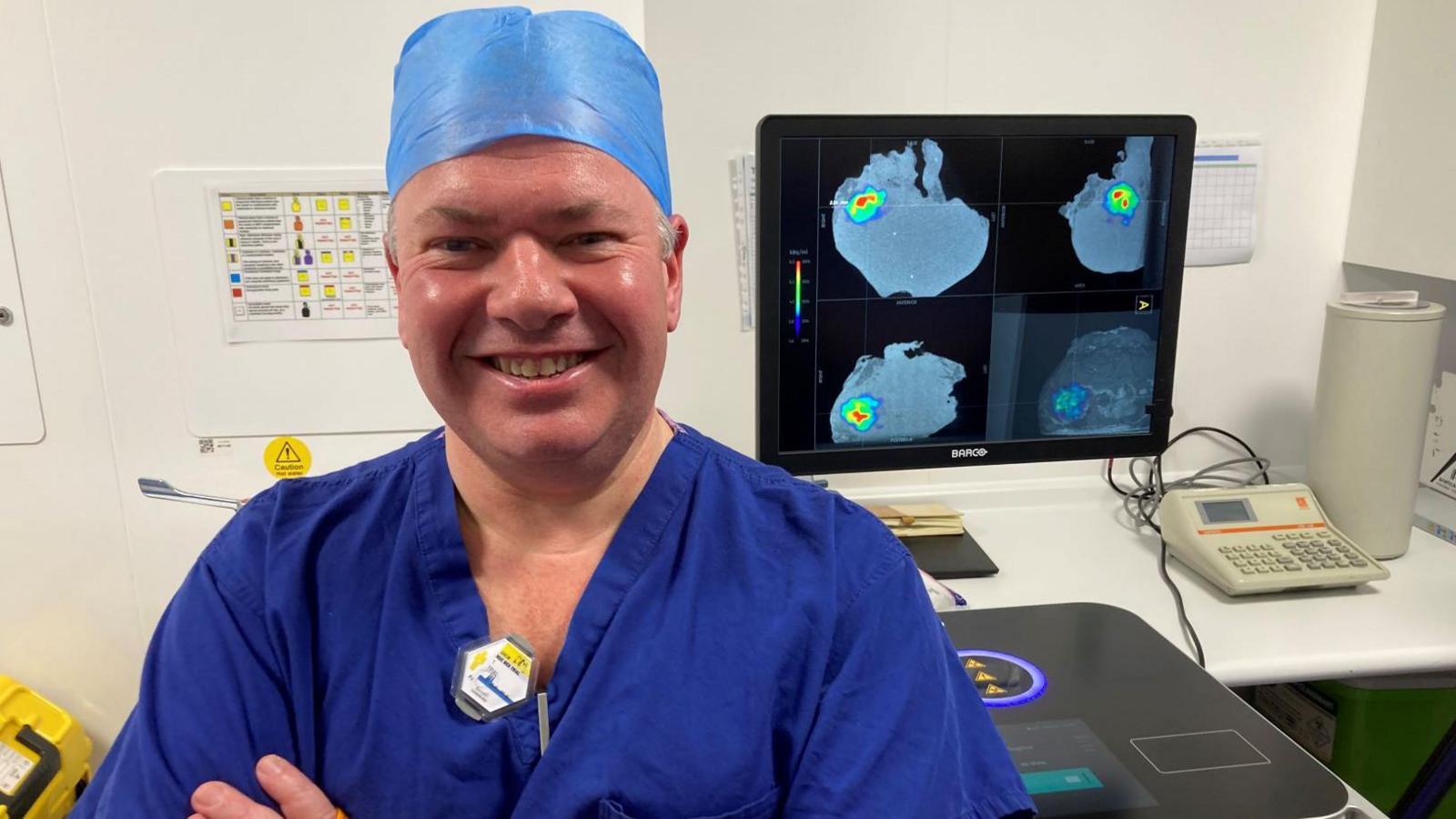
Urology consultant Donald MacDonald said the technology was "an absolute game-changer"
- Published
A Coventry hospital claims it is the first in the world to expand the use of a new scanner for cancer patients to people who have the disease in their head and neck.
University Hospital Coventry is undertaking a trial using a machine known as Aura-10 to check whether all the cancer has been removed from patients while they are still on the operating table.
It is also the first centre in the UK to use the machine to treat prostate cancer.
Doctors at University Hospitals Coventry and Warwickshire NHS Trust believe the technology could be a "game changer" in improving cancer care.
The Aura-10, which combines a CT scanner and a PET scanner in a small mobile unit, can produce high-resolution submillimetre images of the cancer in a tumour in 10 minutes.
Currently in the NHS, a tumour has to be sent to a lab for testing after it has been removed, in Coventry this takes 4-5 weeks.
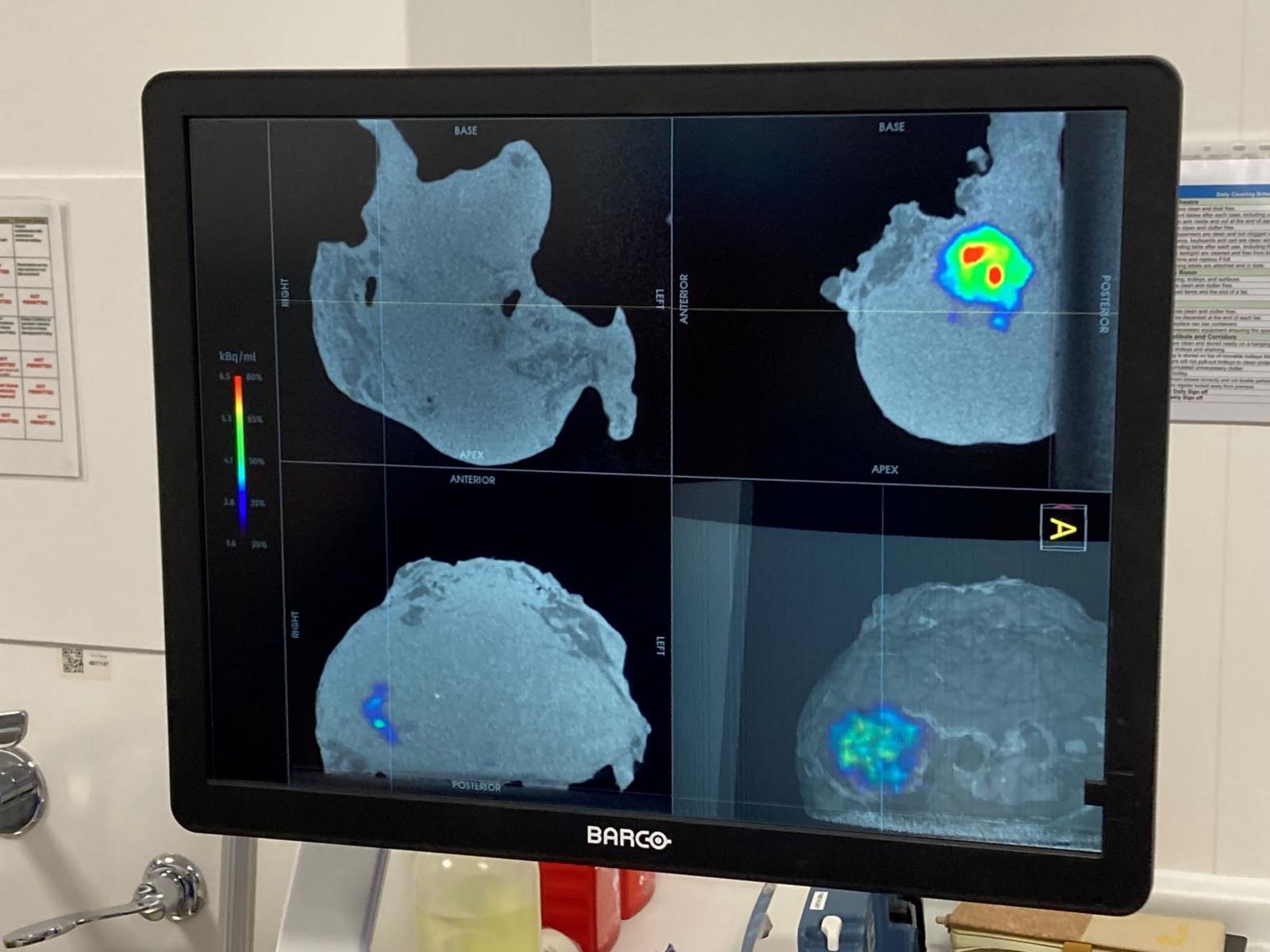
The Aura-10 can produce high-resolution images of the cancer in a tumour in 10 minutes
Gary Walton, a maxillofacial consultant at the trust, said the machine could therefore reduce a patient's need for chemotherapy or radiotherapy in the future.
The machine was first used in October on a patient who had cancer of the jaw.
Donald MacDonald, a urology consultant at the trust, has been using the Aura-10 for prostate cancer operations.
He said that nationally, in about a quarter of cases, not all the prostate cancer was removed and patients had to have radiotherapy to remove the remainder once results came back from the lab.
In a further quarter of cases, he believed too much tissue was removed, which could cause nerve damage that left patients with incontinence issues.
Mr MacDonald said he could be certain that all the cancer had been removed by using the scanner, adding that it was possible to go back in and take out more tissue if needed because the patient was still under anaesthetic.
"This is an absolute game changer for prostate cancer surgery and has the potential to make Coventry one of the best prostate cancer centres in the world," he said.
'Really excited about results'
Before the operation, the patient is given Gallium68, a mild radioactive substance that is absorbed by the tumour. Coventry is one of few UK centres with the technology to produce Gallium68.
Oludolapo Adesanya, clinical lead for nuclear medicine and the trial's principal investigator, said it had taken a year to get the regulatory processes in place to start the work but it had been worth it.
The equipment costs about £250,000 but it could save money, given staff shortages in histopathology and the likelihood of less need for further treatment, said John Elliot, the trust's head of cancer services.
Mr Elliot also believes it is better for patients.
"This is still a trial and we are about halfway through, but we are really excited about the results. They appear to be as good as the pathology labs and, in future, this could be used in a lot more areas of cancer care," he said.
The trust said a lot of hospitals, particularly in London, were interested in the work being done in Coventry and it could be adopted by other centres.
Get in touch
Tell us which stories we should cover in Warwickshire
Follow BBC Coventry & Warwickshire on BBC Sounds, Facebook, external, X, external and Instagram, external.
- Published10 July 2024
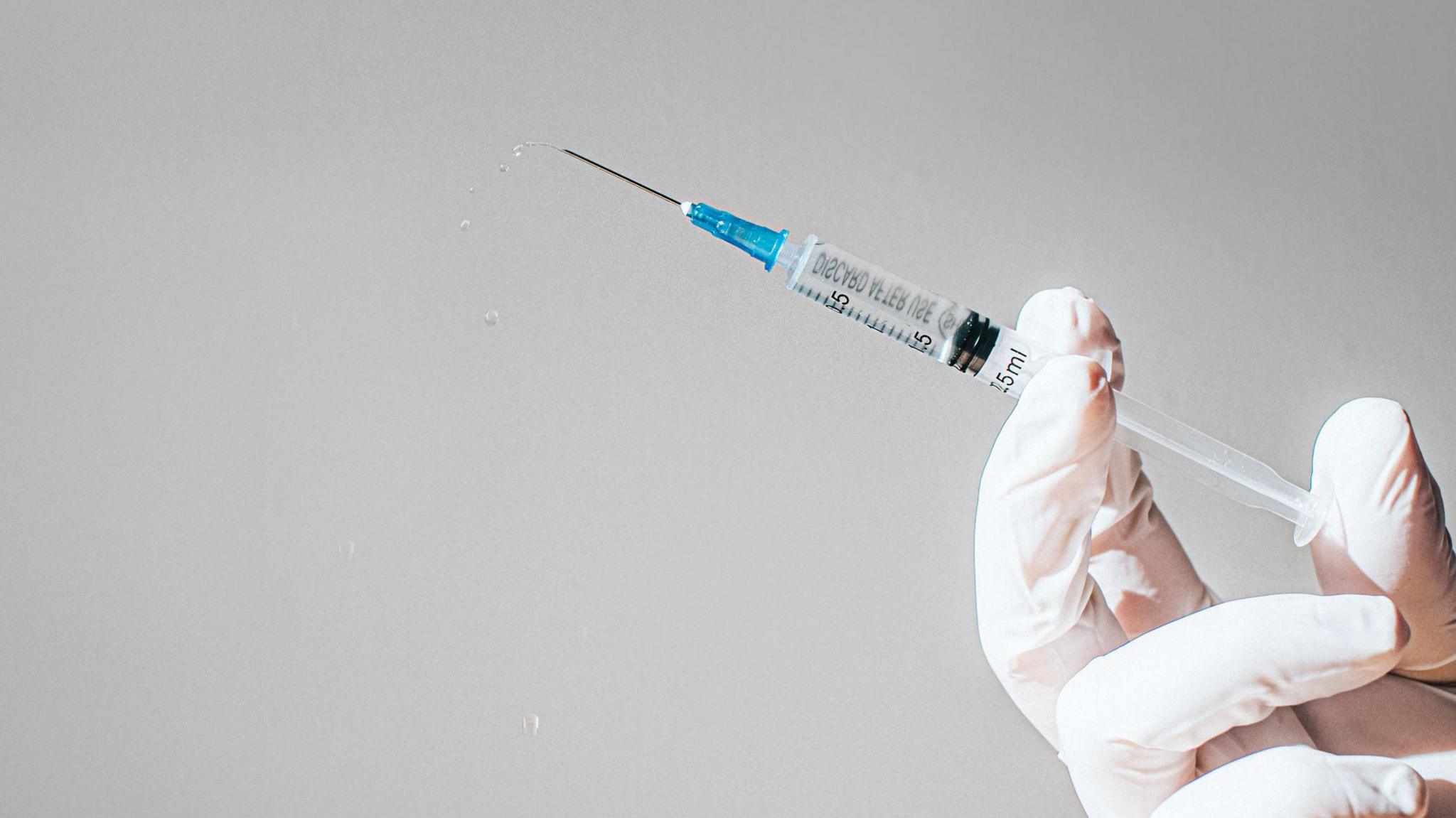
- Published9 January 2024
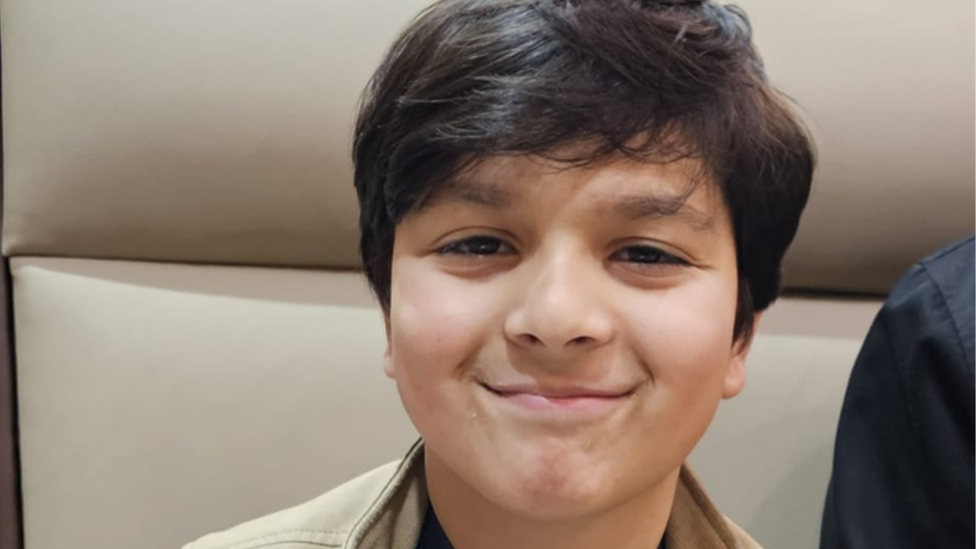
- Published9 June 2023
